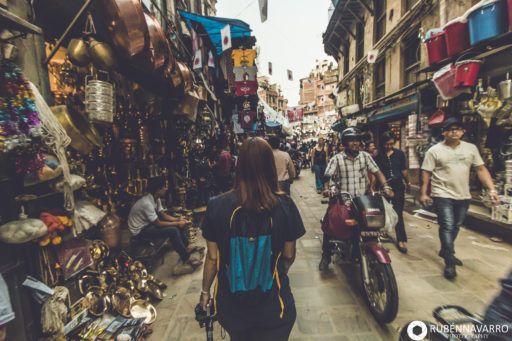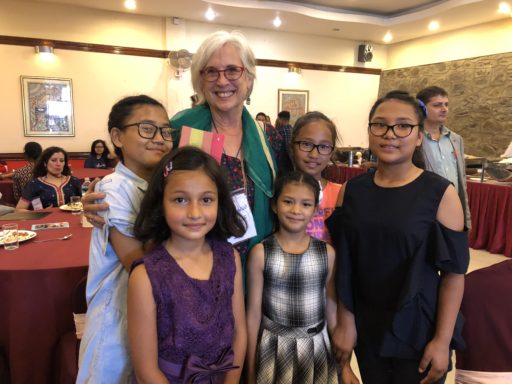
Her oversized suitcase was open: a yawning, yearning invitation. She wanted to fill it with trinkets, with Mardi Gras beads and crow feathers and toys for the children, puzzles and sweets and crayons. They had told her to bring nothing but Tylenol and repellent and filters and probiotics and Pepto-Bismol. All the rest would be hers for a song at the marketplace, they said.
Why go to a marketplace when all I want is the rarest thing: the silence of no sound, no humming lights, the quiet of my own life? she thought. Why even fill a bag or go to some faraway overpopulated country for that matter? I already know that everything I need is right here. Inside this bubble I call me. In my life as it is. Available.
The silver panel light flickered on at that exact moment. She felt the beckoning of the sleek, square machine, open and ready, offering everything. Her fingers began to itch. All you need to do is cross the room. Tickle the keys. Find the marketplace right here. Easy as that. In no time, new hip packs and bras and wicking socks were on their way. Done.
Four days later, in Kathmandu, the marketplace was all around her, a bazaar as old as a birthing room for a millenia or two, the center of the Tibetan-India trade route. She started out for a walk with friends in Thamel, the old town, with the usual air bubble around her intact. Then two horns converged behind her, having reached a loud agreement that she was wrong, wrong wrong, weaving as she was between rickshaws and motorcycles and people and motorcycles and dogs and motorcycles and broken pavement and motorcycles and still more motorcycles.
Life itself, with all its technicolor terror and magnificence entered her and her private bubble popped. There was nothing to do about it but keep on. Day after day she ventured out into the too-muchness. Her dreams filled up with cacophony and incense and pashmina scarves. She began to long for an escape, and yet still she went forth.
One day she followed the labyrinth of narrow alleyways to the very center and found herself at a bookstore for pilgrims, a site made famous and prosperous by the Hippie Trail of the Sixties. It was deep and tall and stretched back, back , back, filled with esoteric books and tools for the seeker. From what she had heard, it was more humble, more hidden, following the earthquake three years ago. She fumbled around and then requested a title from a small, dark man with wire rim glasses. He nodded, disappeared up, up three flights of stairs. Just when she was about to leave, he returned with a pink paperback. It was a stripped-down version of the beautiful antique illustrated one that she had hoped to find, like the one she had given her own daughter as a teenager. But she had always secretly known that her daughter had never read it, would not. She didn’t find pleasure in long afternoons of reading, preferring to sing and dance instead.
This one was for Preeti, the girl she had come to know only barely, but one whose education she had supported from the other side of the world, one month at a time. She had longed to give her everything. But most of all she dreamed of giving her a way out from the fear and disappointment of her alcoholic stepfather and her sad quiet mother who had escaped with broken teeth and no home or room to claim as her own.
As she paid for the book,  this treasure, she felt right, right right. But when she gave it away she felt even better. A pink, paperback copy of A Secret Garden. Hardly an object to be worshipped and savored, in her country of used book stores and garage sale finds. But Preeti grabbed it, kissed it, refused to offer to loan it to the other children who were already asking. She clung to it in every photo, proudly announcing that it was hers, hers, hers.
this treasure, she felt right, right right. But when she gave it away she felt even better. A pink, paperback copy of A Secret Garden. Hardly an object to be worshipped and savored, in her country of used book stores and garage sale finds. But Preeti grabbed it, kissed it, refused to offer to loan it to the other children who were already asking. She clung to it in every photo, proudly announcing that it was hers, hers, hers.
Top image by GTMDreams Photos, CC BY-NC-SA 2.0 license

